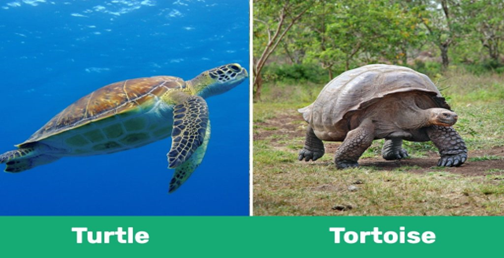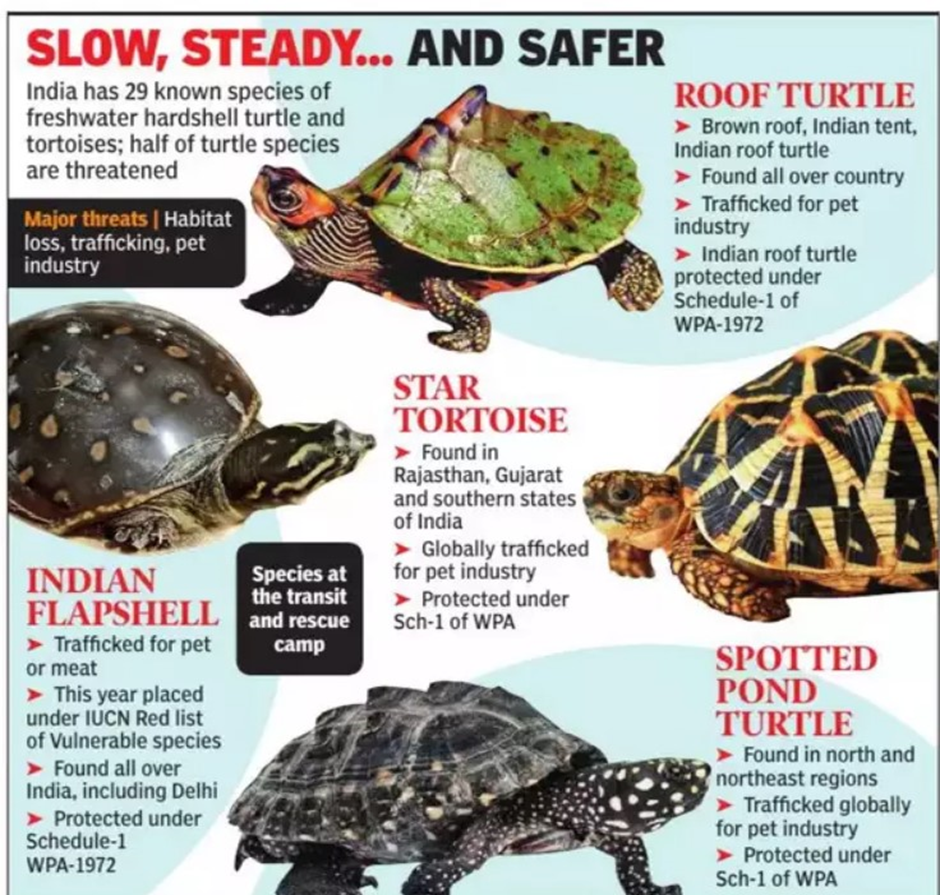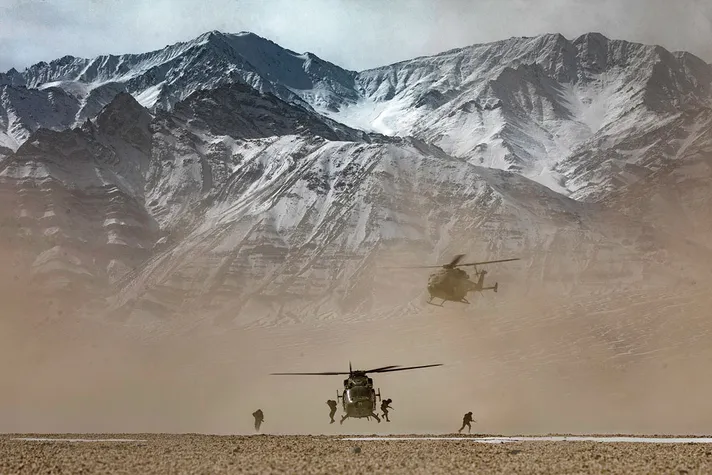- Courses
- GS Full Course 1 Year
- GS Full Course 2 Year
- GS Full Course 3 Year
- GS Full Course Till Selection
- Online Program
- GS Recorded Course
- NCERT (Recorded 500+ Hours)
- Polity Recorded Course
- Geography Recorded Course
- Economy Recorded Course
- AMAC Recorded Course
- Modern India, Post Independence & World History
- Environment Recoded Course
- Governance Recoded Course
- Science & Tech. Recoded Course
- International Relations and Internal Security Recorded Course
- Disaster Management Module Course
- Ethics Recoded Course
- Essay Recoded Course
- Current Affairs Recoded Course
- CSAT
- 5 LAYERED ARJUNA Mentorship
- Public Administration Optional
- ABOUT US
- OUR TOPPERS
- TEST SERIES
- FREE STUDY MATERIAL
- VIDEOS
- CONTACT US
Illicit Trade of Tortoises and Hard-Shell Turtles
Illicit Trade of Tortoises and Hard-Shell Turtles
05-10-2023

Latest Context
- A recent study titled 'From Pets to Plates,' published in Oryx, The International Journal of Conservation, has provided information about the illicit (illegal) trade of tortoises and Hard-shell turtles.
- The study was conducted by experts associated with the Counter Wildlife Trafficking Programme of the Wildlife Conservation Society-India.
Major Highlights
- Chennai emerges as the primary node in the tortoise and hard-shell turtle trafficking network.
- The city plays a central role in the global pet trade, facilitating the illicit trade in these reptiles.
- Mumbai, Kolkata, Bengaluru, Anantapur, Agra, North 24 Parganas (in West Bengal), and Howrah (near the India-Bangladesh border) are also crucial in the network, contributing significantly to the trafficking of tortoises and turtles.
- Soft-shell turtle trafficking is primarily domestic in nature.
- International trafficking of soft-shell turtles to and from India is mostly limited to Bangladesh.
- The Asian Turtle Crisis:
- Wild populations of tortoises and freshwater turtles face immense pressure from illegal trade for pets, food, and medicines.
- At least 15 of the 30 threatened TFT (Tortoises and Freshwater Turtles) species in India are illegally traded.
- Freshwater species, such as the Indian flapshell turtles, are in great demand in illegal markets.
- The Indian Softshell turtle, also known as the Ganges Softshell turtle, is a freshwater reptile found in the Ganges, Indus and Mahanadi rivers in northern and eastern India.
- Wild populations of tortoises and freshwater turtles face immense pressure from illegal trade for pets, food, and medicines.
- Comparing Networks:
- The study found that the tortoise and hard-shell turtle network had a more extensive geographical scale with more international trafficking links compared to the soft-shell turtle network.
- Dire Condition of Trafficked Turtles:
- Turtles involved in the illegal trade often arrive dehydrated, starved, and with injuries.
- High mortality rates among trafficked turtles highlight the urgency of addressing this issue.
Tortoise and Hard-Shell Turtles
- All tortoises are turtles as they belong to the order Testudines/Chelonia.
- Tortoises are distinguished from other turtles by being land-dwelling, while many (though not all) other turtle species are at partly aquatic.
- Hard-shell turtles have rigid and bony shells that provide protection and cannot be easily compressed.
- According to the International Union for Conservation of Nature (IUCN) most of the species of turtles and tortoises are vulnerable, endangered or critically endangered.
- Indian star tortoise, Olive Ridley Turtle and Green Turtle are a few examples of Tortoise and Hard-Shell Turtles in India.
Soft-Shell Turtle
- Softshell turtles are a large group of reptiles in the family Trionychidae.
- They are called softshells because their shells lack hard scales, and are instead leathery and flexible.
- They often lie buried in mud, sand, and shallow water.
- Commonly found Soft-Shell Turtles in India are Indian Flapshell Turtles, Indian peacock softshell turtles, and Leith’s Soft-shelled Turtle.
|
Characteristic |
Tortoises |
Turtles |
|
Shell Shape |
High-domed, rounded, heavy shell |
Thinner and more streamlined |
|
Habitat |
Primarily terrestrial (land-dwelling) |
Adapted for life in water |
|
Diet |
Primarily herbivorous |
Omnivorous or herbivorous |
|
Limbs |
Thick, columnar legs, claw-like toes |
Flipper-like legs, webbed feet |




